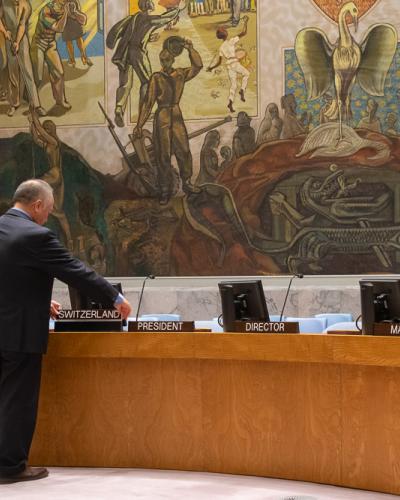During an open debate on 24 April, the UN Security Council discussed the effectiveness of multilateralism. Especially in a time of multiple crises, multilateralism needs to be strengthened and focused. The international community should ensure, that its efforts are concentrated on the major issues that cannot be solved in isolation, such as climate change, pandemics or extreme poverty; the world economic crises or the threat of war.
The UN Charter, adopted shortly after the end of the Second World War in June 1945, is the basis of the multilateral system. Territorial expansion by force – formerly a privilege of the great military powers and a legitimate means of foreign policy – was prohibited by the Charter. "Switzerland is convinced that effective multilateralism remains the only way to achieve the vision of a peaceful and just world. A world where the rule of law prevails and not the law of the strongest and where human dignity is always respected. A world in which, finally, the entire population benefits from social and economic progress", said Swiss UN Ambassador Pascale Baeriswyl in New York.
However, the impact of the UN Charter is only as great as the will of the international community to implement it. All too often, this will is lacking. The principles of the Charter are not a menu from which we can pick and choose. "We call for unconditional respect for international law by all actors in all circumstances. And we call for the courage to finally and seriously engage in reforms of the multilateral system, including this Council, in order to restore confidence in and within that system", Baeriswyl underlined at the Security Council.




